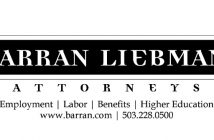Have you considered re-examining your form of business ownership? If you are a sole proprietorship or general partnership, you might be missing some advantages you could otherwise receive.
Incorporating, specifically using the “S” corporation format, is an avenue you might want to examine.
The name of this form of ownership comes from its appearance in chapter one, subchapter “S” of the Internal Revenue Code. This type of corporation was created solely for small businesses and presents quite a list of advantages. Chief among those plusses is the limited liability protection that any corporation offers. The corporation is legally a separate person from you, the owner. If your business should fail, you will ordinarily not be liable for anything outside the dimensions of the corporation.
But why the “S” form specifically? Well, the other forms of corporation (notably the “C” corporation) will require you to pay taxes twice: first, in the form of corporate profits, second, on the personal income of the shareholders—which would include you. With the “S” approach, you need to pay taxes only on shareholder profit.
You must follow a few specific rules to qualify for “S” status:
1. You can gain no more that 25% of your income from passive sources. This rule is meant—among other reasons—to limit the benefits of “S” status to active companies that are working to remain profitable. Also, this (along with #2, below) prevents larger corporations from taking advantage of a type of investment that was created for smaller firms.
2. You must be an individual or an estate of an individual to benefit from “S” corporation status. In other words, the incorporated business cannot be a subsidiary of another corporation.
3. You are allowed to have a maximum of 100 stockholders. (I remember when that number was ten; the laws governing “S” have become much more lenient in the past few years.)
4. You can issue only one type, or class, of stock.
5. All of your shareholders must unanimously agree to be formed as an
“S” corporation.
Despite these restrictions, the “S” corporation just might be the route for your business. Here are some examples of scenarios that could call for at least some type of corporation:
• You derive income from two or more sources. Adding the multiple incomes together place you in a higher tax bracket. Incorporating one or more of your income sources could place a sufficiently high percentage of your income in a separate category so that you won’t arrive at the higher bracket position.
• Let’s say that you encounter a “success problem,” that is, ever-increasing demand for your products or services that only rapid expansion can take care of. Your issuing of and selling of stock is a fast and relatively painless way of getting that expansion money without incurring additional debt.
• You are afraid of lawsuits. The corporate form of ownership will keep a litigation from stripping you bare. Only your corporate assets will be at risk.
Also, I have observed over the years that Uncle Sam seems to lean towards rewarding corporations over individuals and partnerships in many subtle and not-so-subtle ways.
Despite the size of your business, incorporating might be worth examining, if you haven’t done so already. Here are some good sources for additional information on incorporating, and specifically incorporating as an “S” corporation: for links to all state corporation websites, try www.findlaw.com/11stategov/indexcorp.htm. For information on Delaware law, use www.state.de.us/corp. (Delaware has long been known as a state that is good to incorporate in if you are planning to do business in more than one state.)
Be sure to visit your accountant and an attorney before making the decision to incorporate—as an “S” corporation or a “C.” Incorporating might not be right for you. However, it might save you a great deal of money and worries. In the next issue of CBN, we will examine the limited liability company (LLC).
Lowell H. Lamberton is Professor of Management at Central Oregon Community College. You may call Professor Lamberton at 541-383-7714 or e-mail him at llamberton@cocc.edu.




